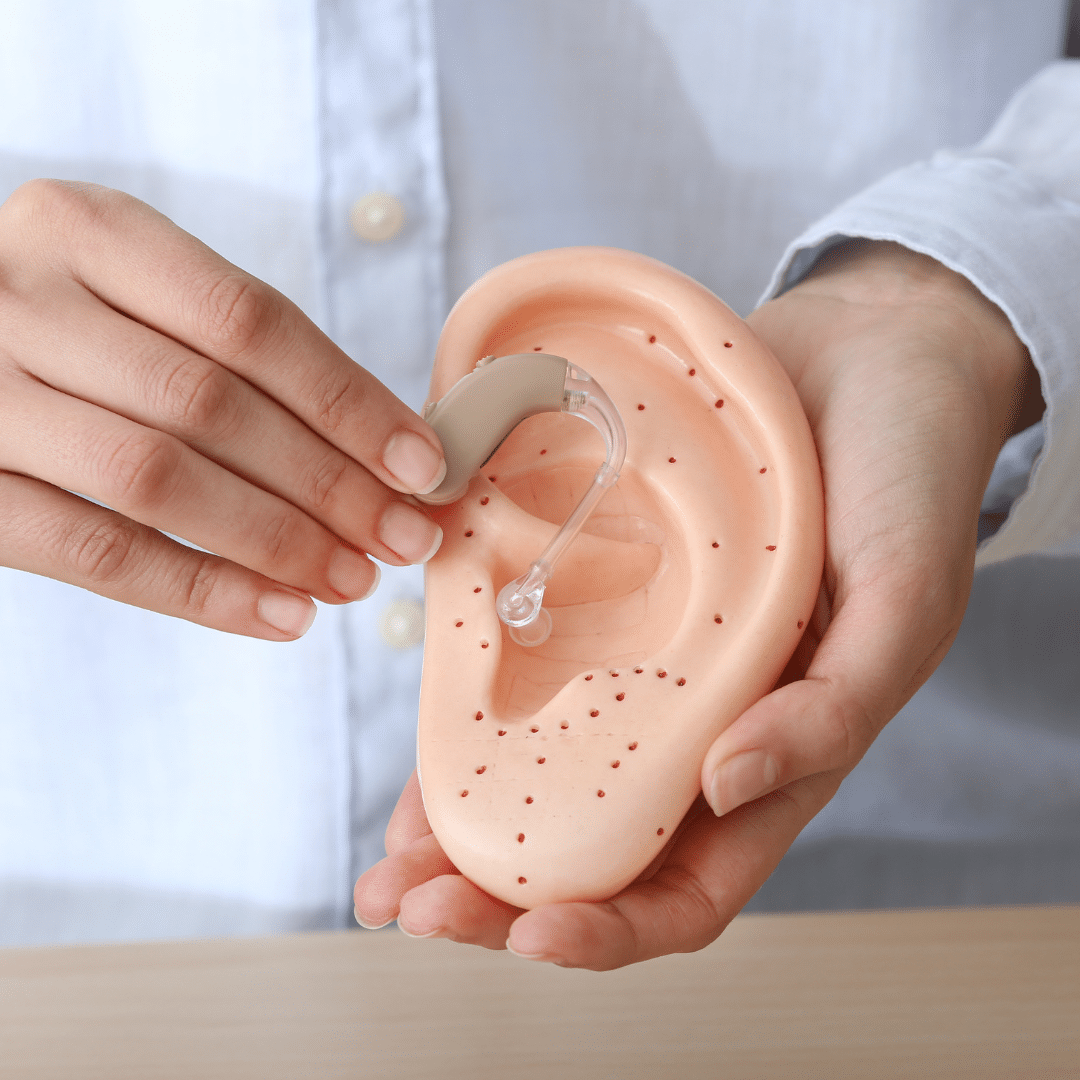Parkinson’s can take a toll on our mental health, whether we are a person with the disease or a care partner.
It’s true. A Parkinson’s diagnosis would make anyone feel stressed, anxious or depressed. But not everyone understands that these are real clinical symptoms of Parkinson’s disease, alongside tremors, rigidity and freezing episodes.
This may be due to the way Parkinson’s affects the brain’s ability to regulate dopamine and other “feel good” chemicals, scientists have theorized. There’s also the stress that comes with staying on top of medical appointments and medications, and feeling unsure of what the future will entail.
Meanwhile, watching a loved one with Parkinson’s cope with symptoms while providing round-the-clock care can trigger stress, anxiety and depression in their partners. It’s common for both parties to be worried about the other person’s emotional well-being.
Whether you are living with Parkinson’s or caring for someone with the disease, we came up with five tips to help fight stress, anxiety and depression—plus an easy way to remember them. Here’s a hint: Life can get M.E.S.S.Y. When it does, reach for one of these tools in your mental toolbox.
M is for Meditate
Meditation has long been used in Eastern medicine to improve focus and achieve mental clarity. Now even Western scientists are studying the neurobehavioral effects of meditation or “mindfulness” for a range of chronic diseases, including Parkinson’s and dementia.
Their research revealed that meditation not only improves how the brain functions over time, but it helps us in the short term, as well, by releasing hormones that lower stress and anxiety, and regulate our sleep cycle. Meditation helps us clear brain fog and control racing thoughts. It keeps us focused, alert and living in the present. It can even help a person with Parkinson’s talk themselves through a freezing episode.
Just remember that meditation doesn’t come easily for everyone. It takes practice and determination to be good at it. If you’re not sure where to start, read our article on mindfulness meditation and try the simple practice that’s included.
E is Exercise
You saw that one coming, didn’t you? It’s hard to get the motivation. But once you do it and stick with it, you’ll feel better physically and mentally. Why? Because exercise is the best medicine for Parkinson’s.
It’s a one-stop shop for reducing tremors, stiffness, rigidity; improving balance, gait and sleep; and lowering stress, anxiety and depression. This is your chance to physically fight back against disease progression. Exercise gives you the sense of feeling more in control over your body and your brain.
Looking for motivation to get started? Try following along with our exercise videos. You can also learn more about exercise for Parkinson’s by reading our overview and recommendations.
S is for Socialize
There are days when you want to hide from the rest of the world. You seek solace on your couch. You binge on Netflix. You become absorbed in a video game. The weeks go by, and before you know it, you’ve gone too long without seeing your favorite people.
Anxiety, depression and stress will rear their ugly heads if you allow yourself to become lost in your own thoughts for too long. Deep down, humans thrive on human companionship. Sometimes all it takes is a phone call to a friend or relative, or a kind smile from a stranger, to snap yourself out of a bad mood.
You can also join us for one of our events! Whether it’s an online program or an in person cooking class, we have a variety of ways for you to join us and meet other people in the Parkinson’s community. Joining an Parkinson’s exercise class is also a great way to socialize and get your steps in. Visit our exercise classfinder as a first step to finding a class in your area.
S is for Seek Help
When stress, anxiety or depression become overwhelming or you’re just plain tired of feeling lousy all the time, don’t be afraid to seek professional counseling. Seeking medical attention when we’re physically ill is what people do all the time. Why should it be any different when we feel mentally or emotionally unwell?
Talking to a counselor or therapist is not a sign of weakness — it’s a sign of strength. It means that you are able to recognize when you don’t feel like yourself. What’s more, you are brave enough to ask for support. Sometimes the best self-care you can do is allowing others to care for you. This goes for care partners too.
Y is for Yoga
Yoga is especially beneficial for those living with Parkinson’s because it boosts mobility, strength, balance and flexibility. Performing stretching motions while taking slow, deep breaths sends oxygen to various parts of the body for nourishment, while reducing stress, depression and anxiety.
In fact, a study conducted by the Yoga Biomedical Trust in London found that 94 percent of participants saw a reduction in anxiety after performing yoga each morning. Try doing yoga before you start your day. During the last few minutes of your practice, when you’re lying in savasana or stillness, set your intention for what you wish to achieve in the next 24 hours, even if it’s just “peace of mind.”
Yoga is the perfect tool to pull yourself out of panic mode because it almost acts like a reset button. If you’re overwhelmed, take a few minutes to do some yoga. Focusing on breathing and gliding your body into relaxing postures will soothe frazzled nerves and improve mental focus. At the very least, it’s a temporary distraction from whatever stressed you out in the first place.
By Kathryn Jones



